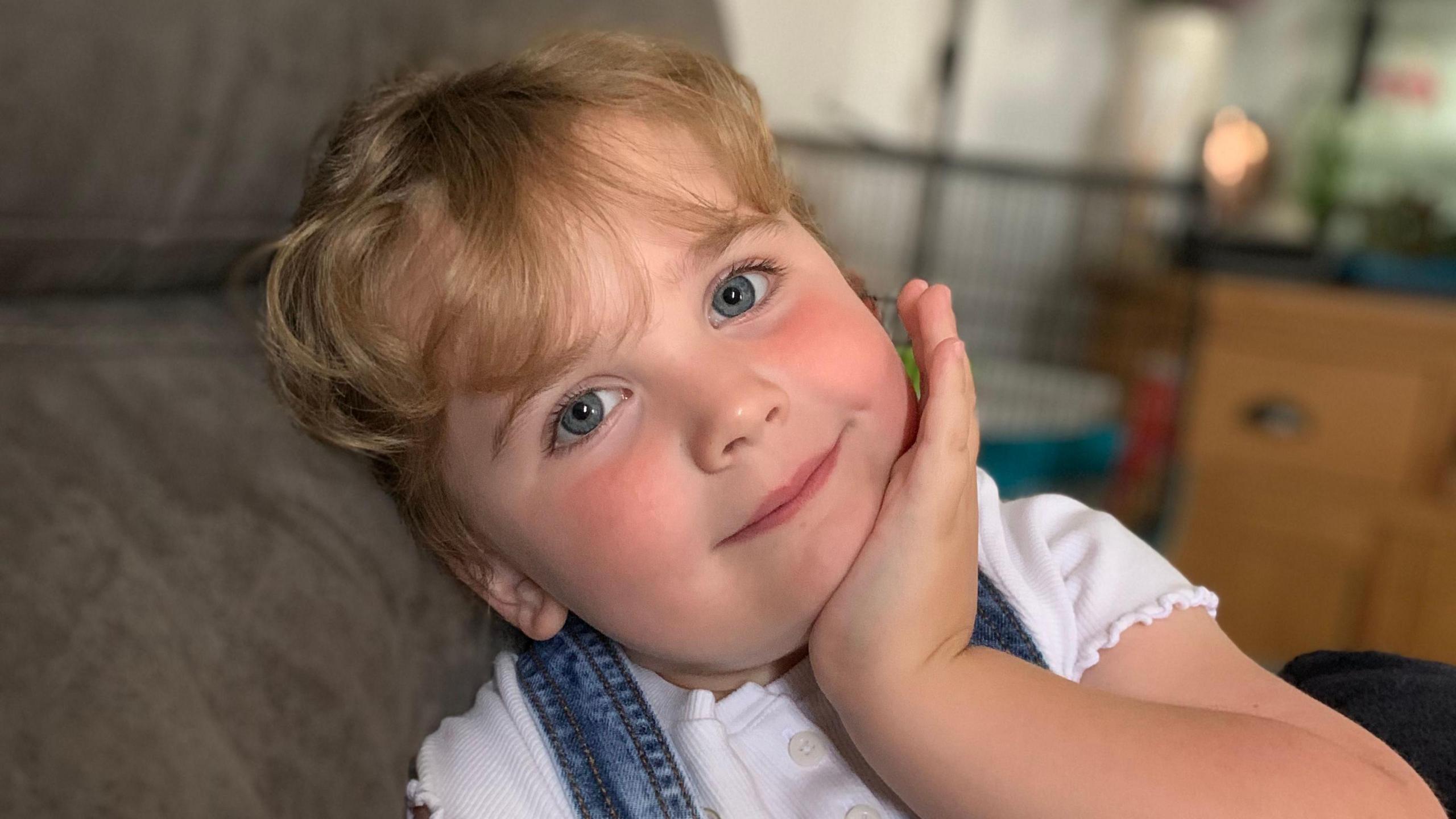Girl, 5, died days after routine tonsils surgery

Amber had her tonsils and adenoids removed in a planned operation
- Published
A five-year-old girl died after a blood vessel ruptured following a routine operation, an inquest has heard.
Amber Milnes died at Royal Cornwall Hospital on 9 April 2023, four days after her tonsils and adenoids had been removed to help improve her sleep patterns.
Paediatric pathologist Dr Andrew Bamber told the inquest at Cornwall Coroner's Court on Wednesday Amber had died as a result of "a severe bleed from a ruptured vessel at the surgery site".
In a statement to the court, Amber's mother Sereta Milnes said the little girl had been "our magical little princess".

The inquest into Amber's death began on Wednesday
Mrs Milnes said Amber had "lit up our home" and had been "the happiest little girl".
"Bam completed our family, the puzzle that will never be complete," she said.
Amber had suffered from cyclical vomiting syndrome (CVS) which meant she had prolonged periods of severe nausea which could sometimes last for days, the inquest heard.
She had been sent home after the surgery with oral pain relief and anti-sickness medication which she had been unable to take due to the onset of CVS.
Four days after the operation, she was readmitted to hospital but died after she suffered "a massive haemorrhage" from a ruptured blood vessel, Dr Bamber told the inquest.
He said he did not consider the vessel to have been damaged during the surgery but that inflammation and infection had caused the rupture.
Senior coroner Andrew Cox questioned doctors from the Royal Cornwall Hospital about the operation, the decision to discharge Amber that same day and the care she was given in the hospital when she was readmitted.
In a statement Mrs Milnes said she had repeatedly told the medical team before the operation that Amber would need to stay in hospital after the operation because of her CVS.
Mr Kel Anyanwu, associate ears, nose and throat specialist, who had performed the surgery, told the inquest there had been no cause for concern during the operation.
He said he had seen no sign of damage to blood vessels or any signs of infection.
When asked by Mike Bird, the solicitor representing the Milnes family, whether he could have damaged the vessel, Mr Anyanwu said it was "theoretically possible" but that "bleeding would have started immediately".
He said it was "possible and likely" the localised infection around the blood vessel had been a result of the operation.

Amber was five when she died
Consultant paediatrician Dr Stuart Nath had worked with Amber and her parents on her CVS for a number of years.
He told the inquest the condition was very rare affecting about three in 100,000 patients.
Mr Bird told the inquest Mrs Milnes had called the hospital at about 07:00 GMT to report that Amber had been vomiting and she had been told to keep her at home.
Dr Nath had been on leave when Amber had been readmitted to hospital later that day and said "knowing Amber and knowing CVS, an early presentation would have been helpful".
After Amber had been readmitted she had been given antibiotics and antiemetics intravenously via a canula.
The inquest heard that at 01:40 nurses found the canula had come out.
It had not been restored until just before 14:00 the following day, at which point Amber had been found to be mildly dehydrated and the antibiotic had been six hours late.
Dr Katherine Mallam had been the consultant paediatrician on call when Amber died.
She said by the time she had got to the ward, resuscitation efforts were underway but after one hour and 20 minutes, the team stopped.
She said events had taken place very quickly but the correct procedures had been carried out.
She said there had been "a balance of reasons" in considering whether to restore the canula during the night including sleep disturbance, the amount of fluids Amber had received and the challenging nature of inserting the canula.
She added there had been no notes from the night staff about the rationale to not restore the canula.
The inquest continues.
Follow BBC Cornwall on X, external, Facebook, external and Instagram, external. Send your story ideas to spotlight@bbc.co.uk, external.